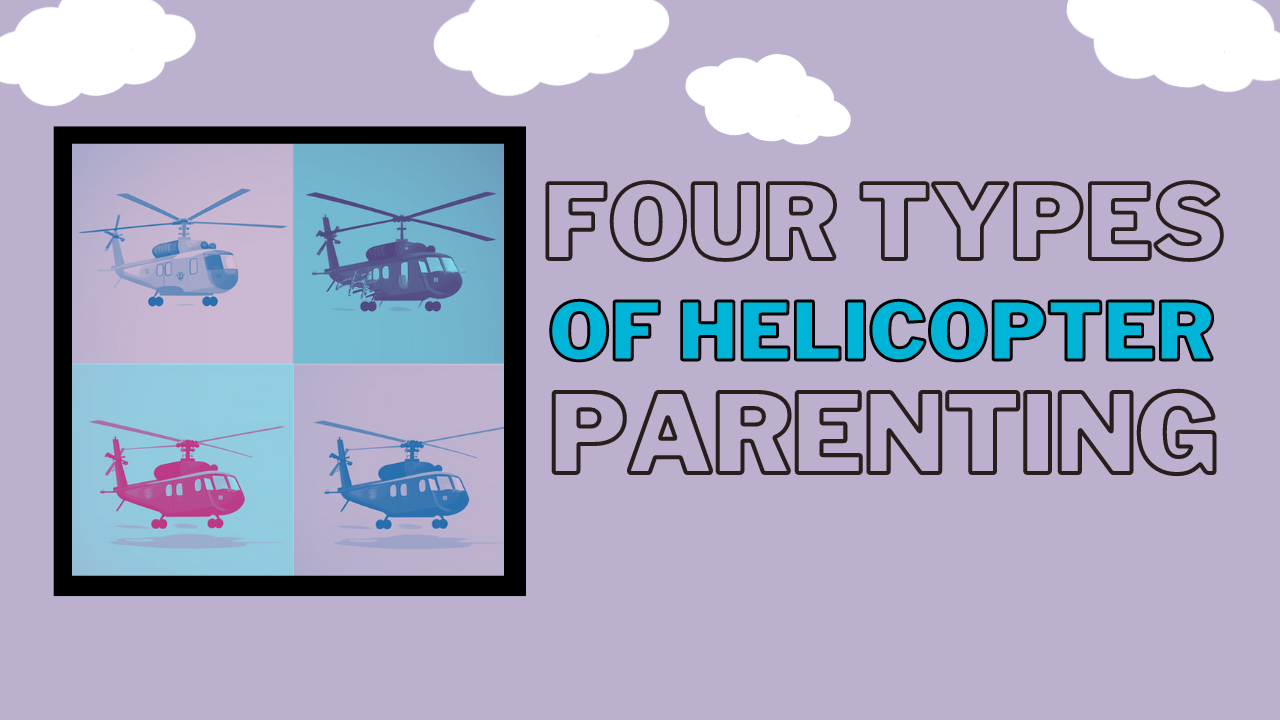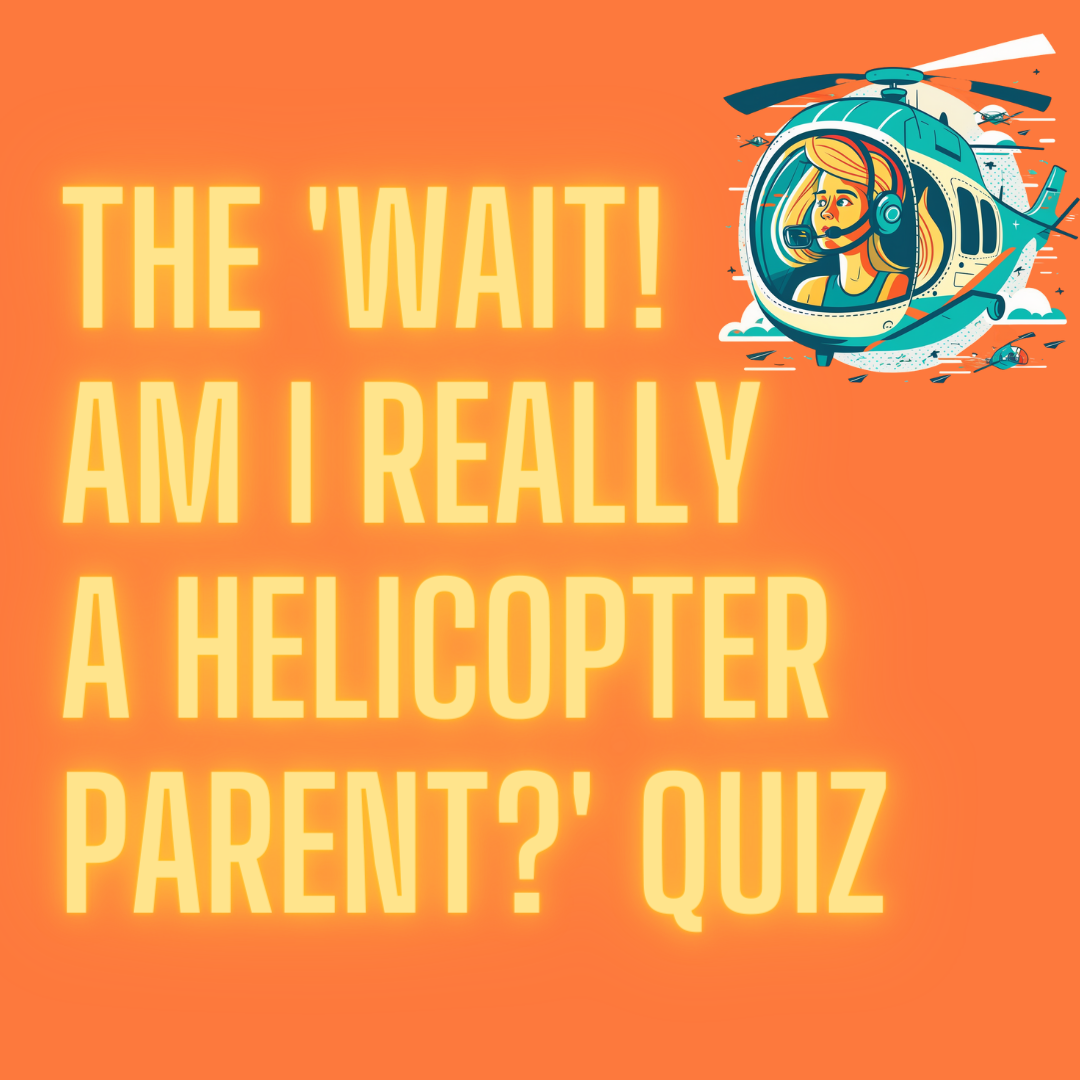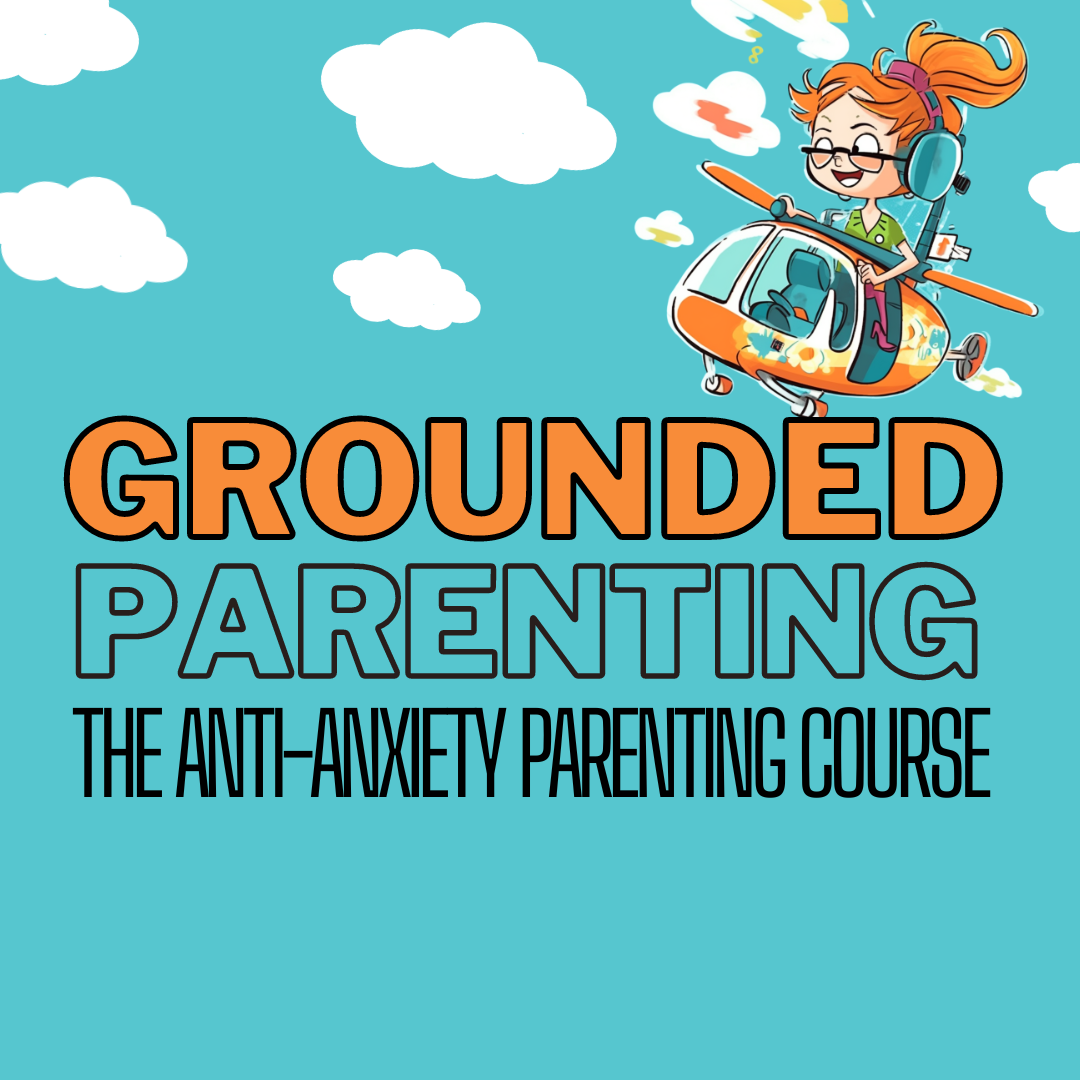Four Types Of Helicopter Parents
May 21, 2023
Helicopter Parents: Meaning and Definitions
Helicopter parenting is a term that has gained popularity in recent years, referring to parents who are overly involved in their children's lives. This parenting style involves hovering over various aspects of their child's life, from academics to social interactions. While it may seem like this level of involvement would be beneficial for the child, research suggests otherwise. In fact, helicopter parenting can have negative effects on children's development and well-being. In this post, we will explore what helicopter parenting is and why it matters. We will also discuss the potential consequences of this overly protective parenting style and provide tips for finding a healthy balance between involvement and autonomy.
Take The "Wait! Am I A Helicopter Parent Quiz"
If you want to find out if you're a helicopter parent, take our short quiz to find out your anxiety levels and if they are translating into helicopter parent behaviors.
Understanding Helicopter Parenting Psychology
There are five important aspects of any parenting style:
- Warmth: This represents the emotional climate provided by parents. High warmth, demonstrated through affection, empathy, and positive reinforcement, fosters a sense of security and positive self-worth in children. However, a lack of warmth can lead to feelings of neglect and emotional insecurity.
- Control of Behaviors This dial reflects the extent to which parents guide their children's actions, including setting rules, monitoring activities, and disciplining inappropriate behavior. While moderate behavioral control helps children develop self-discipline, excessive control can stifle independence and self-efficacy.
- Control of Autonomy: This dial relates to parents' influence on their children's psychological and emotional development. High psychological control, such as guilt induction or love withdrawal, can negatively affect a child's emotional health, causing anxiety and low self-esteem.
- Expectations: This dial is all about what parents anticipate from their children in terms of behavior, achievements, and growth. When set right, it can inspire children to meet their potential; but when set too high, it can put undue pressure on them, leading to stress and self-esteem issues.
- Acceptance: This dial gauges how much parents acknowledge and validate their children's unique individuality, feelings, and experiences. When the acceptance dial is well-balanced, children feel understood, supported, and free to express themselves, fostering healthy self-esteem and emotional well-being. However, low levels of acceptance can lead to feelings of rejection, lower self-confidence, and difficulties in social relationships.
The five dials of parenting allow for an infinite number of combinations perhaps one for each parent on the planet - but generally, we will see some patterns in the settings of these dials.
Tiger Parent / High Achievement Parents
High Achievement Parents are known for their strict and demanding approach, often setting the Control of Behaviors and Expectations dials high. Their settings on the Warmth and Acceptance dials can be moderate or low, as they place a strong emphasis on tasks, discipline and achievement. The Control of Autonomy dial is often set low, reflecting their strong control over their children's activities and decisions.
Lawnmower Parent / Snowplow Parents
Snowplow Parents are typically high on the Warmth, Acceptance, and Expectations dials, showing great love for their children and high hopes for their success. They often set the Control of Behaviors dial high to clear obstacles from their children's paths. However, much like Helicopter Parents, they tend to set the Control of Autonomy dial high as well, which can hinder their children's development of self-reliance and problem-solving skills. Lawn-mower parents will be actively involved in the child's education from kindergarten through to leaving high school.
Elephant Parents
With respect to the five dials, Elephant parenting would ideally entail high warmth, nurturing close relationships with children; balanced expectations, encouraging development at their own pace; low control over behaviors, allowing children to make mistakes and learn from them; moderate structure, providing a safe environment for exploration; and high acceptance, valuing the child's unique identity and experiences. This approach aims to provide a stable environment for children to develop emotional resilience, independence, and self-efficacy.
Helicopter Parent:
The helicopter parent style is known for its highly involved approach. They tend to have high settings on the Warmth, Acceptance, and Control of Behaviors dials, showing great affection and interest in their children's lives while maintaining strict control over their behaviors. However, they often have a high setting on the Control of Autonomy dial and a medium to high setting on the Expectations dial, which can limit their children's independence and put pressure on them to meet high standards.
Jellyfish Parents,
Jellyfish Parents on the other hand, often have high settings on the Warmth and Acceptance dials, showing great emotional warmth and acceptance of their children's unique qualities. However, they tend to have low settings on the Control of Behaviors and Expectations dials and a high setting on the Control of Autonomy dial. This can lead to a lack of structure and discipline, potentially leaving children unprepared for the challenges they'll face in adulthood.
Dolphin Parents
Dolphin parenting is a balanced approach that combines both discipline and freedom, striving to strike a balance between the rigid control of tiger parenting and the lack of structure in permissive parenting. Here's how Dolphin parenting aligns with the five dials: Moderate to high warmth, fostering a loving and supportive relationship with their children; balanced expectations, promoting both academic achievement and social-emotional skills; moderate control over behaviors, giving children guidance but also allowing them room to make their own decisions; high structure, providing a stable environment while encouraging independence; and high acceptance, acknowledging the individuality and unique potential of each child. Dolphin parents, like their namesake, are agile and adept at adjusting these dials based on their child's evolving needs, helping them grow into well-rounded, autonomous, and resilient individuals.
What are the different types of helicopter parenting?
Helicopter parenting refers to the style of parenting where parents are highly involved in their children's lives and tend to hover over them, always looking out for their best interests. These four types of Helicopter Parent are based on surveys of the admissions staff, financial aid staff, academic counsellors, deans, of four year universities be researchers attempting to create a typology of helicopter parents. The authors were able to group helicopter parents into types based on the focus of their anxiety:
The Justice-Oriented Helicopter Parent
The Justice Oriented Helicopter parent would speak to college staff with a perception that their child was due to fair or equal rights compared to other students, regardless of their academic performance. They took it upon themselves to advocate for better grades or accommodations for their child.
The Safety-Concerned Helicopter
The Safety-Concerned Helicopter parent was more concerned with the physical safety of their child to varying degrees of appropriateness, this can be seen as being overprotective and undermining of their child's sense of being capable and mature.
The Customer Service Helicopter Parent
These types of parents seemed to treat academic advisors as if they were customer service representatives and that their college experience was a transaction in which hospitality and customer care was a priority. These parents tended to make threats to the staff they spoke to.
The Vicarious Helicopter Parent
The VIcarious Helicopter Parent probably missed out on some of their own college experiences and were reported to 'hover' at sporting or social events when other parents did not. These are the reconnaissance helicopter parents who watch from the sides and live through their child.
The Toxic Helicopter Parent,
This type of helicopter parent was reported to be more manipulative and potentially suffering with some mental health issues that were exacerbated by their child's departure from home.
*Somers, P ., & Settle, J. (2010). The helicopter parent: Research toward a typology. College and University, 86(1 ), 1 -1 0
How can parents break the cycle of helicopter parenting?
Helicopter parenting can lead to negative consequences such as children feeling anxious, unable to make their own decisions, and lacking independence. If you are a parent who recognizes the need to break the cycle of helicopter parenting you should first recognize that helicopter behaviors come from anxiety. In our course "Grounded Parenting" we take a Family Systems oriented approach to chronic anxiety. This chronic anxiety is the type of anxiousness that is behind 'Helicopter Parenting', 'Tiger Parenting' 'Jellyfish Parenting'. The course helps viewers start to parent from a more grounded position and is suitable for any parent, caregiver or mental health professional interested in Family Systems Theory. Find out more about Grounded Parenting here.
1 Understand Where Parental Anxiety Comes From
In order to combat anxiety, you have to know where it comes from. As a Family Systems therapist, I help clients and parents understand Chronic Anxiety as a function of their levels of differentiation.
2. Learn Where Anxiety Gets Focused
Our anxiety tends to be directed in one of two places: 1) on an OTHER person - our partner, co-parent, but more typically our child or 2) on the FUTURE or the PROBLEM or the FIX, I call this being Fear-Based. Really anxiety needs to be FIXED inside, that way it doesn't spill out onto other people,
3. Understand How Anxiety Impacts Boundaries
The boundaries around our self help us in so many ways; they keep our feelings from gushing out, distinguish our Self from Others and contain our anxiety. Balanced boundaries are the most healthy boundary we can have and should strive to have. This type of boundary helps us remain calm and non-reactive and listen and express our feelings to others.
4. Gain Confidence in Parenting With Limits and Consequences
Anxiety can spin us into worry storms causing us to doubt our decisions and be overly focused on things we can't change, such as other people or bigger world problems. We can, however, change ourselves and become more confident in decisions, especially those around setting limits and consequences.



